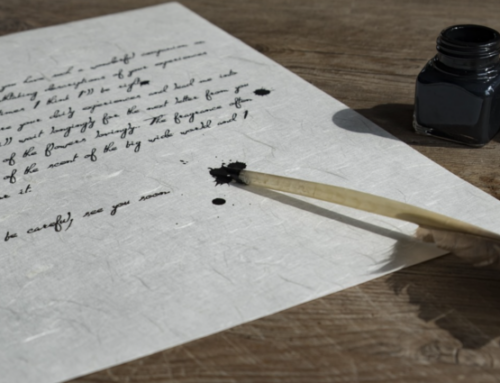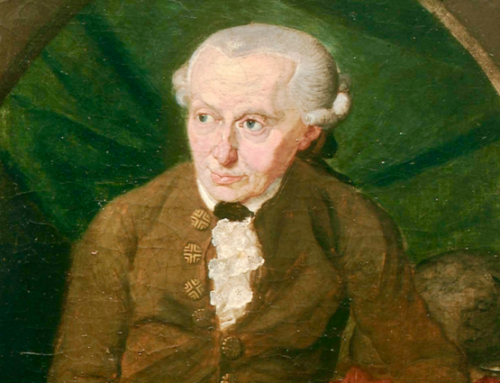Before legal codes were hammered into stone tablets, there were customs that enshrined a code of conduct for all warriors. And this code has always been founded on an unfathomable paradox: that those we kill we must also honor.
It’s a familiar story. A soldier’s rage. In fairness, we might even call it righteous rage. There are few things that would fill anyone with greater fury than seeing a comrade die; the loss of a comrade-in-arms is an unfathomable sorrow. And the dying he witnessed was particularly horrific: The roadside IED that destroyed the vehicle in which his comrade was traveling also severed in half his friend’s body. So, when he, 1st Lt. Michael Behenna, got the chance to take matters into his own hands, he did. The details are murky; they almost always are, but apparently the suspect had been questioned by U.S. military intelligence and the interrogation uncovered no evidence that the suspect had been involved with the roadside bomb (although weapons were found at the suspect’s house). He was released and Behenna was supposed to drive the suspect back to his village, but instead, disobeying orders, drove him to a deserted area, stripped the suspect naked, and started to interrogate him again. Behenna testified that at some point the naked suspect attacked him and he shot him twice in self-defense. The only other witness to the incident, an Iraqi interpreter, contradicted this testimony. Convicted by a military court and sentenced to 25 years (later reduced to 15 years), Behenna was a model prisoner for almost five years. He was out of prison on parole when President Trump granted him a full pardon in May.
It’s an old story. A soldier’s rage. Hector “rammed his spear shaft home, stabbing deep in the bowels, and the brazen point went jutting straight out through Patroclus’s back.” It was, by the standards of that day, a fair fight, but Achilles was “gripped by rage” and “convulsed with bursts of grief.” Nothing could slake his thirst for revenge. He “cut the throats of a dozen sons of Troy in all their shining glory, venting (his) rage on them” for his comrade’s death, but he still could not sleep. Even slaying Hector did not assuage his sorrow. He sensed that more needed to be done than just kill Hector: He pierced “the tendons, ankle to heel behind both feet, he knotted straps of rawhide through them both, lashed them to his chariot, and left the head to drag.” In sight of Hector’s family, the corpse was dragged before the “walls of windswept Troy,” and day after day the corpse was dragged around the funeral bier of Patroclus. But “all-subduing sleep could not take him” and give Achilles rest. Revenge is a poor sleep aid.
America Leads the Way
Even by the standards of 1250 B.C. warfare, Achilles’s actions, particularly the desecration of Hector’s corpse, were disgraceful, but rage is not something easily controlled. But we have come a long way since Achilles desecrated Hector’s corpse and paid homage to his dead friend by slaughtering 12 Trojan prisoners of war, and much of the credit for those changes goes to the United States. We often think of the United States as being in the forefront of technological innovation, but it is just as true—and even more to our credit—that we spearheaded changes to make warfare less savage.
Even before we were quite yet a country, George Washington admonished his officers to ensure the fair treatment of prisoners. In a letter to Benedict Arnold he wrote: “Should any American soldier be so base and infamous as to injure any [prisoner]… I do most earnestly enjoin you to bring him to such severe and exemplary punishment as the enormity of the crime may require.” And he practiced what he preached, ordering his troops to treat captured Hessians after the Battle of Trenton “with humanity,” stressing that the prisoners should “have no reason to complain of our copying the brutal example of the British army in their treatment of our unfortunate brethren.” Similarly, John Adams argued that the humane treatment of prisoners reflected the Revolution’s highest ideals.
But the rules of war were only slowly evolving and even Washington threatened “reprisal” (i.e., executing enemy prisoners is retaliation for the executing of American soldiers) against British prisoners. And American forces certainly viewed differently treatment of captured British soldiers and captured Loyalist troops. Too often Loyalist troops, even if in uniform, were given no quarter by the Americans.
The evolution toward a more humane or, at least, less brutal form of war, continued during the Civil War with Lincoln’s endorsement of the 1863 Lieber Code (General Orders No. 100), the first-ever comprehensive written code articulating the humane treatment of prisoners. Some cynics of the Left and Right will always scoff at the notion of trying to temper or make civilized a thing—war—that is by its very terms brutal and uncivil.
But the Lieber Code set forth in simple, clear language the basis for a code of conduct: that men who take up arms against one another in war do not cease to be moral beings, responsible to one another and to God (Article 15) and that military necessity does not allow cruelty—that is, the infliction of suffering for revenge or to extort confessions (Article 16).
While this code was flawed by modern standards—for example, endorsing the use of reprisals—it warns that the concept of reprisal is a slippery slope that could rapidly lead to the “the internecine wars of savages.” The Lieber Code, in turn, served as the basis for the Hague Convention of 1907 and later inspired the Geneva Conventions.
Do as I Say, Not as I Do
Yet, while the United States has a long, admirable tradition of developing and enshrining civilized rules of warfare, we also have a long, less admirable record of ignoring our own standards when politically expedient (i.e., when public opinion opposes punishment). There is sadly something about the American mindset that bristles at the notion that we are ever guilty of anything. In the last century alone, from the slaughter of thousands of civilian Filipinos to the slaughter of hundreds of Vietnamese civilians at My Lai to the abominations committed at Abu Ghraib, those who are guilty of appalling violations of the rules of civilized warfare often do not face severe punishment.
That all said, having conflicting feelings about these matters is completely understandable. It is sometimes all too easy to moralize and too harshly condemn earnest, decent soldiers who succumb to outbursts of violence. (The recent ACLU statement on the Behenna pardon—that the pardon is a presidential endorsement of murder—is a good example of being overly self-righteous, as well as morally mistaken.) There is some validity to the assertion that those who have not been under similar circumstances cannot really understand and fairly judge. But in many instances, it is fellow soldiers, who do understand, who report violations and other soldiers who pass judgment on the violators. Our military has long understood the pressure and guilt and desire for revenge that is normal during wartime conditions. For that very reason, the Army Field Manual sets forth in very clear terms what is expected of our military personnel: “We all recognize that full compliance with the Geneva Conventions is not always easy for the combat soldier…. For instance, you might be extremely angry and upset because your unit has taken a lot of casualties from enemy booby traps or hit-and-run tactics. But you must never engage in reprisals or acts of revenge against any persons, enemy or civilian…. (Field Manual, FM 27-2, Department of the Army, 23 November 1984). The rules of warfare that we abide by are strict for the very reason that otherwise good people will understandably act in savage ways under difficult circumstances. The rules are there quite explicitly to restrain the dark fury of the good soldier and the darker sadism of lesser soldiers.
Balancing this need for enforcing the rules of warfare against an imperative for leniency in unusual circumstances arguably justifies the Behenna pardon. Behenna had served five years in prison, admits that at least some of his actions were wrong, and his motivations, while wrong, were at least understandable: He had lost close friends and comrades and he was guilt-ridden at their death. The problem is that the Behenna pardon is unlikely to be the last presidential pardon of military personnel, many of whom are far less-worthy supplicants than Behenna. We already know that another military suspect who may be pardoned, Edward Gallagher, faces a premeditated-murder charge for the stabbing death in 2017 of a teenage ISIS fighter who was brought in for medical treatment. The further allegation, if true, that Gallagher posed for a picture with the prisoner’s body and held his reenlistment ceremony with the corpse places him in a completely different category than Behenna. This is also true of other potential candidates, including Nicholas Slatten, a former Blackwater security contractor, already convicted of first-degree murder for killing an unarmed civilian and a group of Marine Corps snipers charged with urinating on the corpses of Taliban fighters. Frankly, it is hard to imagine that President Trump will carefully weigh the propriety of future pardons; the pardons themselves will generate strong support and that will likely be the deciding factor.
War and Barbarism
People who do not know any better condemn war for being a complete breakdown in law and order, an absence of honor and civility. But this is not true and has never been so. Before recorded history the rules of warfare were written in the traditions of men. Before legal codes were hammered into stone tablets, there were customs that enshrined a code of conduct for all warriors. And this code has always been founded on an unfathomable paradox: that those we kill we must also honor. Not so much for their sake as for our own.
Achilles dragging Hector’s body three times around the funeral bier of Patroclus, day after day, degraded Greece more than it desecrated Troy. Caesar showing mercy to those who fought against him secured the borders of the Empire more firmly than all of Rome’s legions. Napoleon, slaughtering those who surrendered after the Battle of Jaffa, did more to undermine the ideals of the French Revolution than any battlefield loss to the British.
Toward the end of the Iliad, the god Apollo speaks to the assembled Olympian deities and questions Achilles barbaric desecration of Hector’s corpse: “What good will it do him? What honor will he gain?” This is the core truth that all the presidential pardons in the world cannot ignore.
Presidents can free prisoners and they can erase criminal records, but presidents have no priestly authority to remove the stain of dishonor; nor have they any mystical power to hide the stain on our national honor when our countrymen falter. Pseudo-patriots, like pseudo-parents, always find an excuse for bad behavior and always defend the indefensible, mistaking idolatry for genuine love and devotion. We all know that the very worst of parents are those who never find fault with their children and who are blind to their mistakes, as we also know that the very worst of Americans are those who are not ashamed when we do not live up to our own principles.
The Imaginative Conservative applies the principle of appreciation to the discussion of culture and politics as we approach dialogue with magnanimity rather than with mere civility. Will you help us remain a refreshing oasis in the increasingly contentious arena of modern discourse? Please consider donating now.
The featured image is “Achilles Displaying the Body of Hector at the Feet of Patroclus” (1769) by Jean Joseph Taillason, courtesy of Wikimedia Commons.








Excellent Article, these questions posed here all people should ponder!!!!!!
Thanks, John. I should confess that initially my visceral response to this situation had me write an essay that was quite different from the one that was finally published. It is an issue that requires careful reflection. People should, as you put it, ponder it rather than react to it. Joe
I would be interested to know if Mr. Mussomeli has also served in the military. Incidentally, I thank him for his always relevant and eloquent articles.
Thanks very much, Peter. The short answer is no, I never served in the military. The longer answer is that I have served along side military personnel most of my 35-year diplomatic career, including in Afghanistan. And I come from a family of soldiers–my father and uncles serving in WW II and Korea, and my two brothers serving during Vietnam and afterwards. My father, who adored the military, told me stories that molded my thinking on these matters. When I was a child and eagerly asked him how many Germans he had killed, he refused to tell me and scolded me, explaining firmly that soldiers must kill, but they should never be proud of the killing. And he was also a great lover of dogs and great hater of Nazis, but when he came across a dog devouring a German soldier’s corpse, he flew into a blind rage and started shooting the dog. Rage, something we all live with just under the surface, is even more palpable and overwhelming during the strain of conflict. Joe
Question—
Was Behenna’s commanding officer aware that he he had “an interest” in the outcome?
Unless Behenna volunteered for the duty, he was either a victim of circumstance or picked BECAUSE of his
involvement.
Of course, it’s possible that nobody bothered to find out one way or another.